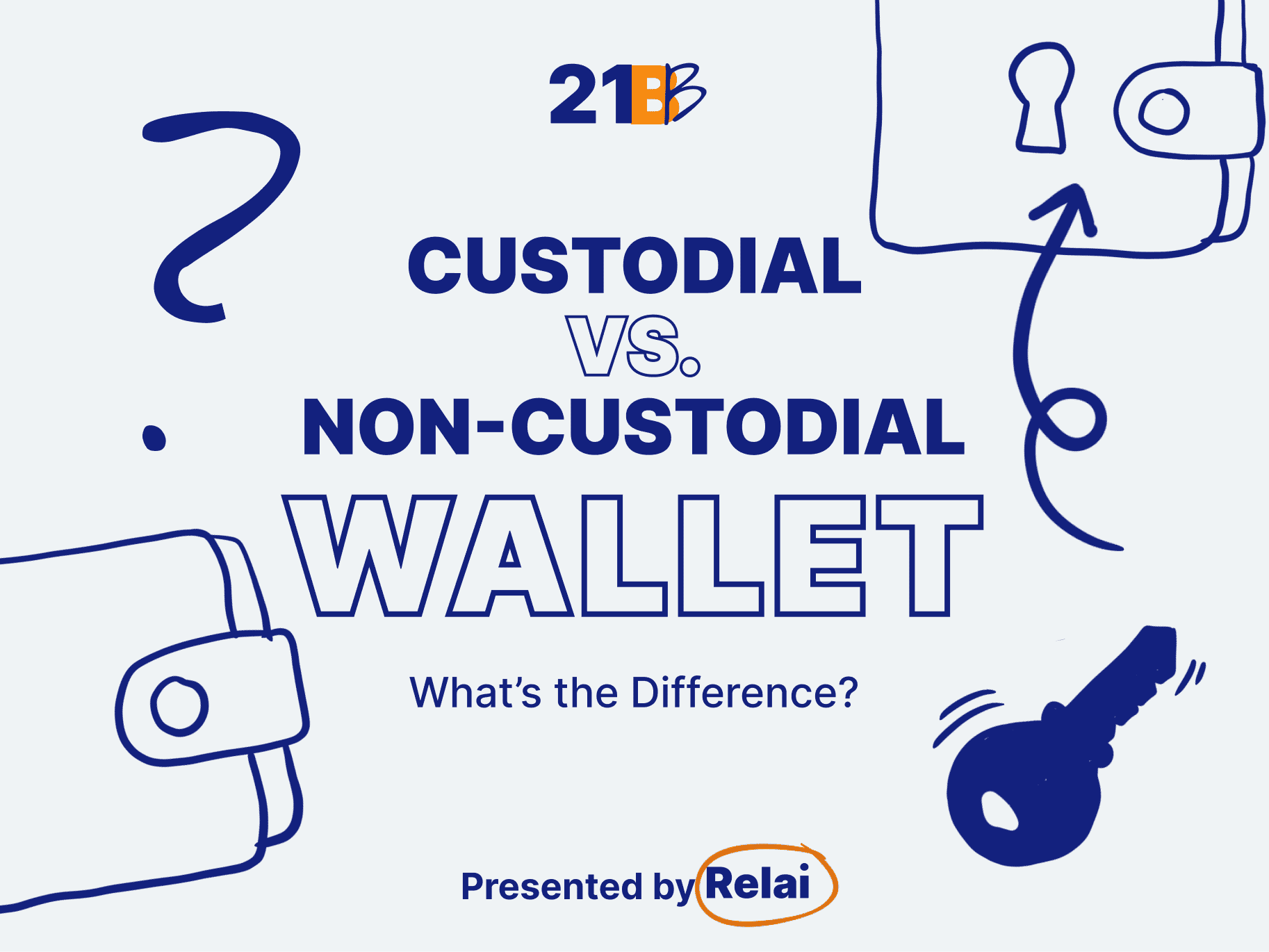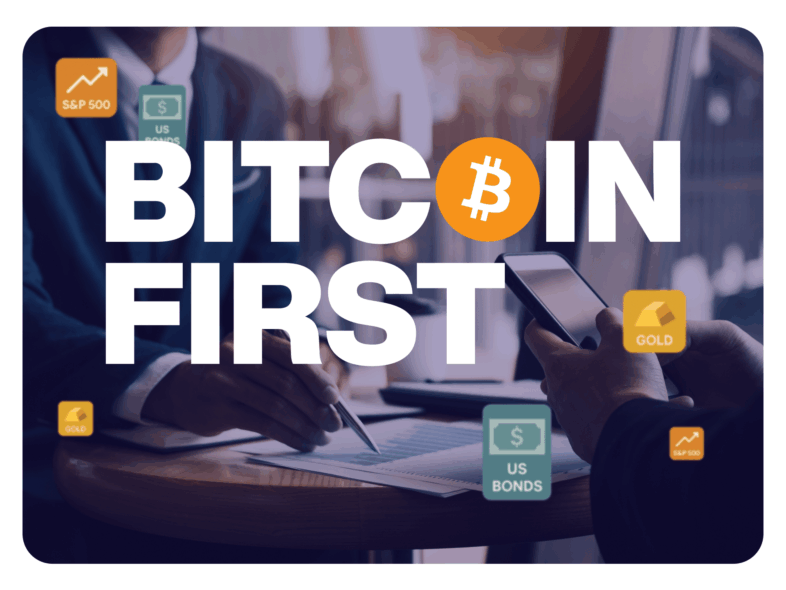In this guide, you will learn about the similarities and differences between the two types of wallets, and which one is considered the better option.
What is a Custodial Wallet?
A custodial wallet is a bitcoin wallet that holds the user’s private keys and, therefore, holds the funds on behalf of the user. Some of the most popular wallets for newcomers – like Coinbase and Blockchain – are custodial.
However, while custodial wallets are somewhat easier to use as they typically only require an email and password to log in, you have to trust the wallet provider with your funds when using a custodial wallet.
Since one of the main reasons to hold bitcoin is to have complete sovereignty over your money, storing bitcoin in a custodial wallet kind of defeats the purpose of investing in and holding a decentralized digital currency that allows you to be your own bank.
When you are holding your coins in a custodial wallet, you are handing over the responsibility of securing your funds to someone else. Someone that now also has control over your funds. While established custodial wallet providers are unlikely to steal your funds directly, they may lock you out of your wallet without notice. Anecdotally, Coinbase users have faced this issue on numerous occasions, for example.
What is a Non-Custodial Wallet
A non-custodial wallet, also known as a decentralized wallet, is a bitcoin wallet where only the user has access to the wallet’s private keys. That means that only you – the user – can access the bitcoin held in the wallet.
While using a non-custodial wallet is the safer option for bitcoin investors (as only they can access their funds), it comes with more responsibility and basic know-how of how to back up and restore a wallet is required.
Since only the wallet user holds the private keys, knowing how to securely back up a wallet is imperative. In most cases, that involves writing down a 12 to 24-word recovery phrase that needs to be placed in a secure location for safekeeping. In the case of loss of access to the wallet, the recovery phrase – also known as seed phrase or mnemonic phrase – can be used to regain access to the wallet.
However, using the recovery phrase, anyone who has it can access the wallet, which is why you should never share your recovery phrase and never store it online.

Double down on self-custody and accessibility. Securing your seed phrase has never been easier.
Store your backup words in virtually indestructible titanium. You can be sure that your backup words are still easily readable after 1, 5, or 25 years. The high-quality backup products work with Ledger, Trezor, BitBox, and many more.
Order your Cryptotag Loki Relai Edition now
Custodial vs. Non-Custodial
Let’s take a look at the similarities and differences between the two wallet types.
| Custodial Wallet | Non-Custodial Wallet | |
| Private Keys | Held by the wallet provider | Held by the user |
| Security | Somewhat secure | Very secure |
| KYC | Some providers require KYC | Some providers require KYC |
| Cybersecurity | Data stored by the provider may be vulnerable to theft and leaks | Typically no user data is stored on the provider’s servers |
| Withdrawal Limits | Some providers have withdrawal limits | No withdrawal limits |
| Beginner-Friendliness | Usually easy to use for beginners | Some wallets can be more difficult to use for beginners |
Looking at the comparison table, you can see that the main difference between custodial and non-custodial wallets is that the latter provides you with complete control and responsibility over your funds.
If you’d ask any experienced bitcoiner, they will always tell you to use a non-custodial wallet because, as the famous saying goes: “Not your keys, not your coins.”
Relai: A Non-Custodial Bitcoin Wallet & Investment App
At Relai, we want to give people complete control over their money. As a result, we chose to make the Relai Wallet a non-custodial wallet.
Only you – the user – has access to the bitcoin held in your Relai Wallet. We believe that’s how it should be!
With using a non-custodial wallet comes the responsibility of backing up your wallet and making sure you know how to restore your wallet in case you ever lose access to the app. So make sure to back up your wallet and enjoy stacking sats!
Takeaways:
- A custodial wallet is a bitcoin wallet that holds the user’s private keys and, therefore, holds the funds on behalf of the user. However, when using a custodial wallet, you must trust the wallet provider with your funds.
- A non-custodial wallet, also known as a decentralized wallet, is a bitcoin wallet where only the user can access the wallet’s private keys. That means that only you – the user – can access the bitcoin held in the wallet.
- At Relai wants to give people complete control over their money. As a result, we chose to make the Relai Wallet a non-custodial wallet.
Disclaimer: Relai services are exclusively recommended for Swiss and Italian residents. None of this content constitutes investment advice. Always conduct your own research before investing in any digital asset.





